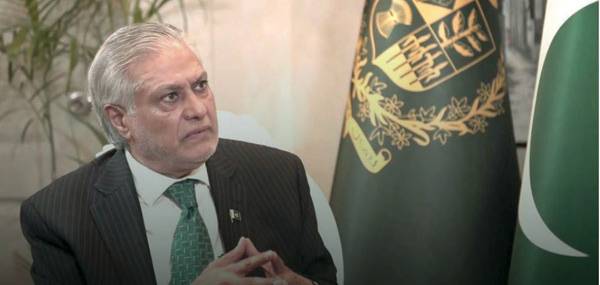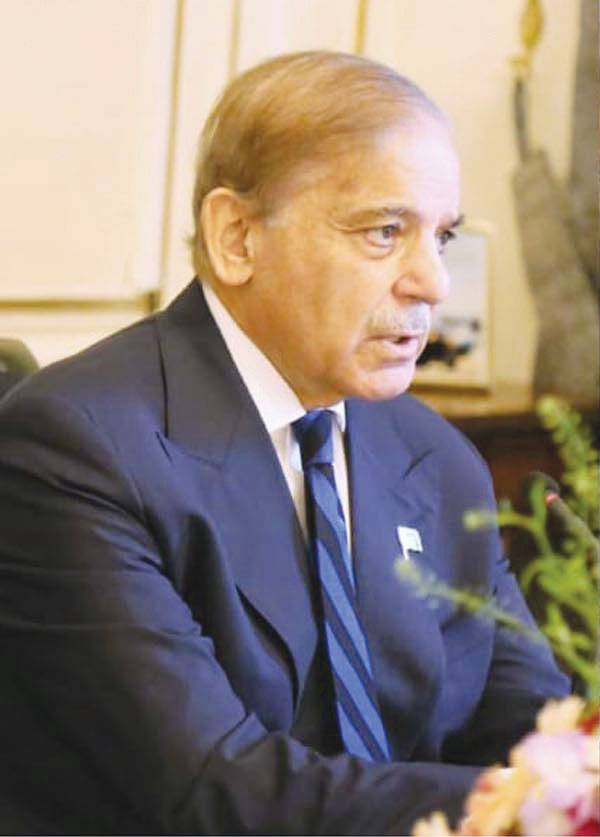

Deputy PM Ishaq Dar warns failure to resolve water issue will amount to act of war Says nuclear option was never on the table Pakistan expels India’s HC official over incompatible activities.
Islamabad – Deputy Prime Minister and Foreign Minister Senator Ishaq Dar on Tuesday warned that failure to resolve the water issue will amount to an act of war.
In an interview with CNN, he said that already precarious ceasefire could be threatened if the water issue is not resolved in the coming talks. He said that Pakistan had no choice but to launch strikes in self-defense following India’s May 7 cross-border attacks. The Deputy PM also said that long-term negotiations between the two parties were not done yet. He said that Pakistan is looking forward to establishing a path for long-term peace and security that would provide dignity for both sides.
Calling Kashmir the root cause of this regional instability, Ishaq Dar called for the granting the self-determination rights to the Kashmir people.
Deputy PM Dar also reiterated that Pakistan is not behind last month’s attack in Pahalgam. He said we condemn terrorism in all forms and all manifestations. He further said he believes that US President Donald Trump has supported Pakistan’s anti-terrorism efforts.
“If they didn’t believe (in our efforts), they would not have cooperated the way (that they did),” Dar said, pointing to Trump’s social media post on “finding a solution” to the Kashmir conflict.
However, Dar warned that the already precarious ceasefire could be threatened “if the [Kashmir] water issue is not resolved” in the coming talks, referring to ongoing disputes of access to water from rivers in Kashmir. Pakistan’s proposed solution involves reversing India’s decision to block three vast Kashmir rivers vital to Pakistan’s economy. Failure to resolve the water issue “will amount to an act of war,” Dar said.
As tensions ratcheted up over the last week of fighting, Pakistan did not consider deploying nuclear warheads to strike India, the country’s foreign minister Ishaq Dar told CNN.
In his first interview since India and Pakistan agreed to a ceasefire Saturday, Dar said Islamabad “had no choice” but to launch strikes in “self-defense” following India’s May 7 cross-border attacks.
Last week’s escalatory tit-for-tat strikes marked the worst fighting between the two nuclear-armed nations since 1971, killing dozens and deepening fears of a wider conflict.
Dar referred to India’s strikes as a “war” and a “wishful attempt to establish its hegemony” in the long-disputed Kashmir region – but said that the nuclear option was never on the table.
“There are certain times when you have to take very serious decisions,” he said, “We were very sure that our conventional capacity and capabilities are strong enough that we will beat them both in air and on ground.”
Following several days of fighting, Islamabad and New Delhi agreed to a US-brokered truce on Saturday.
While the agreement has so far appeared to hold, Dar told CNN that long-term negotiations between the two parties are “not done yet.” “We still hope sense will prevail,” he said.
When asked about the impetus for the unexpected deal, Dar told CNN that “It is in the interest of everybody to not delay or to leave such issues beyond a certain reasonable time.”
“(The Indians) had seen what happened in the sky,” he added. “They could see how serious the damage was.” There was no direct contact between Indian or Pakistani officials, Dar said, contradicting a previous assertion made by India’s director general of military operations, who reportedly received a message from his counterpart in Pakistan during the talks.
Instead, Dar said that US Secretary of State Marco Rubio passed on the message that India was ready to stop the fighting. Rubio said in a Saturday statement that he and US Vice President JD Vance had spoken to the political and military leadership in India and Pakistan to secure agreement before the situation deteriorated further.
Dar also told CNN that Pakistan was looking forward to establishing a path for long-term peace and security that would provide “dignity for both sides.”
Meanwhile, an Indian Staff Member of High Commission, Islamabad, Declared as Persona Non Grata
The government of Pakistan declared a staff member of the Indian High Commission, Islamabad, as persona non grata for engaging in activities incompatible with his privileged status.
The concerned official has been directed to leave Pakistan within 24 hours. The Indian Charge d’Affaires was called to the Ministry of Foreign Affairs on Tuesday for a démarche, conveying this decision.
Earlier in the day, India expelled a Pakistani diplomat, instructing the official to leave the country within 24 hours. The decision followed a week of heightened military hostilities between the two nuclear-armed neighbours, which brought them dangerously close to full-scale war before an uneasy ceasefire was brokered last week.
India’s Ministry of External Affairs alleged that the diplomat had been found “indulging in activities not in keeping with his official status.”
This latest diplomatic fallout comes on the heels of the most serious military confrontation between Pakistan and India in nearly three decades.








